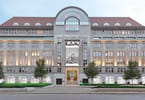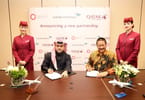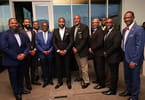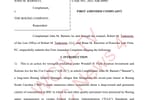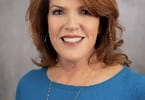Kingston, Jamaica – Business leaders suggested yesterday that Government abandon its complicated import duty structure and charge a flat rate of 10 per cent on all imports in order to increase revenue.
The suggestion came at a luncheon of Government ministers and business leaders hosted by Observer chairman Gordon ‘Butch’ Stewart at the newspaper’s headquarters on Beechwood Avenue in Kingston.
It was attended by Prime Minister Bruce Golding and some of his senior ministers, who responded to recent concerns raised by private sector leaders regarding Government’s high interest rate policy and burdensome taxes that curtailed business activity.
“If you set the duties at 10 per cent Government revenue is immediately doubled,” businessman Gassan Azan told the prime minister.
Golding, admitting that there was a serious revenue problem, disclosed that duty adjustments were being contemplated. According to the prime minister, Government’s revenue from imports represented a mere five per cent of the total value.
At the same time, the business leaders argued that interest rates, although recently reduced by the Bank of Jamaica (BOJ), were still a major obstacle.
President of the Jamaica Manufacturers’ Association, Omar Azan, questioned the rationale of having interest rates set by one person and reiterated that high interest rates made it impossible to compete internationally.
“I don’t think the country should be held to ransom with one person getting up and saying where interest rates should be,” Azan remarked in reference to BOJ governor Derick Latibeaudiere.
Finance Minister Audley Shaw, however, rebutted saying that interest rates were arrived through a monetary committee involving the BOJ as well as the Planning Institute of Jamaica, but more importantly it was a function of the market.
“Although it appears to be a one-man show, the market has a lot to do with it,” Shaw said, adding that the policy led to recent stability in the exchange rate.
However, he added that Government was committed to lowering commercial interest rates.
“Truth is, we have to get back to well below 12 per cent,” Shaw said.
Golding also defended Latibeaudiere, saying that his mandate was to maintain domestic price stability.
“The only tool that he has is the interest rate. If he feels that the exchange rate is under pressure, if he feels that domestic price stability is under threat, that’s the only tool he has,” Golding said. “If he doesn’t use that he isn’t fulfilling his mandate.”
The prime minister also used the opportunity to chide those investors chasing high returns on Government paper while demanding reduced interest rates on loans.
“I find it ironic that sometimes the same people who are demanding lower interest rates, when the Government puts an instrument out there [they] are saying we want 21 per cent on the money we lend Government but we want to borrow it back at 11 per cent,” Golding said.
In the meantime, Stewart, speaking for the tourism industry, charged that cruise ships docking in the island paid no taxes while hotels had to shoulder the burden of the industry.
He argued that both the cruise shipping industry and land-based hotels had to compete in the same market.
Smaller hotels, he said, were hardest hit as the cruise industry drew passengers away in droves from stop-over visitors.
He argued that Government was penalising their own while allowing the cruise industry to flourish through the non-payment of taxes.
Stewart’s remarks came against the background of Government’s requirement for revenue as earnings from traditional sources such as tourism and bauxite/alumina production plummet.
WHAT TO TAKE AWAY FROM THIS ARTICLE:
- “I find it ironic that sometimes the same people who are demanding lower interest rates, when the Government puts an instrument out there [they] are saying we want 21 per cent on the money we lend Government but we want to borrow it back at 11 per cent,”.
- Finance Minister Audley Shaw, however, rebutted saying that interest rates were arrived through a monetary committee involving the BOJ as well as the Planning Institute of Jamaica, but more importantly it was a function of the market.
- In the meantime, Stewart, speaking for the tourism industry, charged that cruise ships docking in the island paid no taxes while hotels had to shoulder the burden of the industry.



